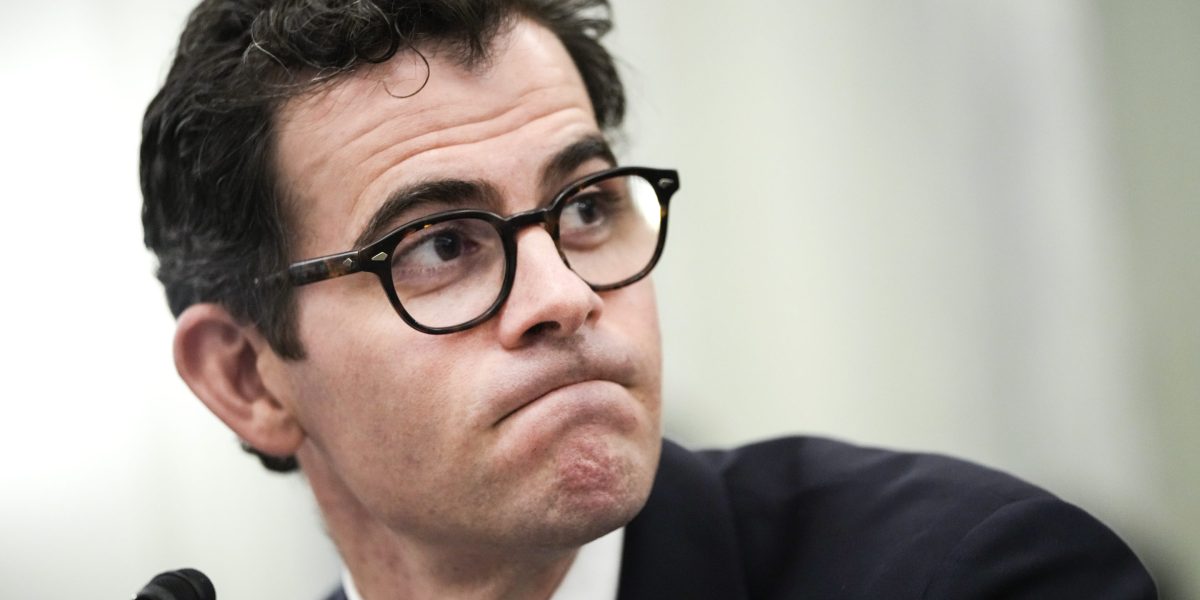Wall Street is undervaluing these companies’ future growth.
Sometimes Wall Street is slow to award companies the valuation they deserve based on positive trends happening in the business. Investors who buy reasonably valued stocks ahead of sharp increases in their earnings can see substantial gains on their investment.
To aid your search, a group of Motley Fool contributors recently selected three stocks they believe can double in value, or get close to it, within two years. Here’s why they like Carnival (CCL 0.20%), Pinterest (PINS 1.22%), and Opendoor Technologies (OPEN 6.25%).
Carnival is still rebounding
Jennifer Saibil (Carnival): Carnival has made a sweeping rebound from its pandemic lows, moving from meme stock to top stock. However, it remains down 64% from its highs over the past five years. There are still a few outstanding issues that are blocking it from returning to its previous levels, but when they are resolved, Carnival should be a standout stock.
One is profitability. Although Carnival’s revenue is reaching record levels and demand is stronger than ever, its profits haven’t returned as quickly. Net income has been up and down, although it made a healthy showing in the fiscal third quarter at $1.7 billion. Wall Street is expecting that to be negative again in the fourth quarter but positive for the full year.
The other and more glaring issue for Carnival is its debt. The debt reached as high as nearly $35 billion at its peak, and although it’s paid off a nice chunk, it’s going to take many years to get the debt to pre-pandemic levels. Carnival didn’t go into this period without debt — it had around $9 billion before. That isn’t unusual for well-established companies, especially those that pay a dividend, like Carnival did in its pre-pandemic life. So while it may not be looking to get down to zero, it still has a ways to go before hitting targets that bring down its risk level.
Management is expecting its increasing free cash flow to go toward paying off the debt. It needs to deftly manage keeping cash coming in and using it to invest in its business, and also have enough remaining to pay off the debt at a steady pace.
Several factors are working in its favor right now. One is the incredibly high demand that isn’t stopping. Carnival cruises are booked out through most of next year at high ticket prices with record deposits, bringing in much-needed funds. It’s already beginning 2026 bookings at record levels.
Another is lower interest rates, which can help it refinance its debt at better rates. That should make it easier to pay off earlier. It could also lead to higher demand as more people feel the flexibility to spend again.
Carnival stock doubled last year on its sales rebound. If it makes enough headway on its profit and debt goals over the next two years, it could easily double again.
Millions of people are shopping with Pinterest
John Ballard (Pinterest): One stock investors have forgotten about is Pinterest. This is a fallen darling of the post-pandemic surge in growth for digital media platforms, when Pinterest experienced robust growth from people staying at home and browsing apps on their phones. The company’s revenue growth has accelerated this year, which could set up a comeback for the shares.
Like other social media platforms, Pinterest uses digital advertising to generate revenue. The recovery in the digital ad market and recent artificial intelligence (AI) features are driving higher conversion for advertisers, which has pushed quarterly revenue growth back above 20% year over year for two straight quarters.
The biggest differentiator for the Pinterest app is that people use it when they are shopping. This is appealing to advertisers, and Pinterest continues to lean into this with features that encourage users to click and make a purchase. The number of outbound clicks sent to advertisers more than doubled in the second quarter, for the third consecutive quarter.
Pinterest is also seeing accelerating growth in monthly active users. They’ve increased by 12% year over year in Q2 to reach 522 million. This growth is mostly coming from outside the U.S. and Canada, indicating that Pinterest has a lot of global potential.
The stock trades at a very reasonable forward price-to-earnings (P/E) ratio of 23 on this year’s earnings estimate and 19 times next year’s expected earnings. Higher margins are expected to grow earnings at high rates over the next few years, which should send the shares higher.
Competing platforms like Instagram owner Meta Platforms and Snap trade at forward P/E multiples of 27 and 48, respectively. If Pinterest stock trades at a P/E of 30 on 2026 earnings estimates, it would trade at $64, or 90% higher than the current share price. That’s close to a potential double, and Pinterest could certainly get there by meeting Wall Street’s expectations.
An easy way to bet on a housing recovery
Jeremy Bowman (Opendoor Technologies): Opendoor’s history on the stock market has mostly been a disaster thus far.
Shares of the professional home-flipper are now down 95% from its post-IPO peak in 2021, but the main reason for its struggles is the collapse of the housing market after the pandemic. Falling prices and weak demand led to major losses for a company whose business depends on buying houses and selling them for a profit.
The macro gods may be finally smiling on Opendoor, as the housing market appears to be on the verge of a recovery. The Federal Reserve just slashed benchmark interest rates and is expected to continue lowering them over the next couple of years. That means mortgage rates should also come down, encouraging more buyers to come back into the market. That demand should also encourage more sellers, which will provide more opportunity for Opendoor.
Currently, annual existing home sales are at a pace of roughly 4 million, down about 40% from where they were before the pandemic. As the home sale rate normalizes, Opendoor’s business should grow. While rising home prices help the company, it also makes money from fees when it buys and sells properties.
Additionally, the company has streamlined its business after several layoffs, which should help drive profitability. Currently, the stock trades for less than $2 a share and has a market cap of $1.3 billion, which means it could double in the next two years if macroeconomic conditions cooperate.
While the stock remains risky and should continue to be volatile, there’s a lot of upside potential in Opendoor stock in a healthy housing market.



